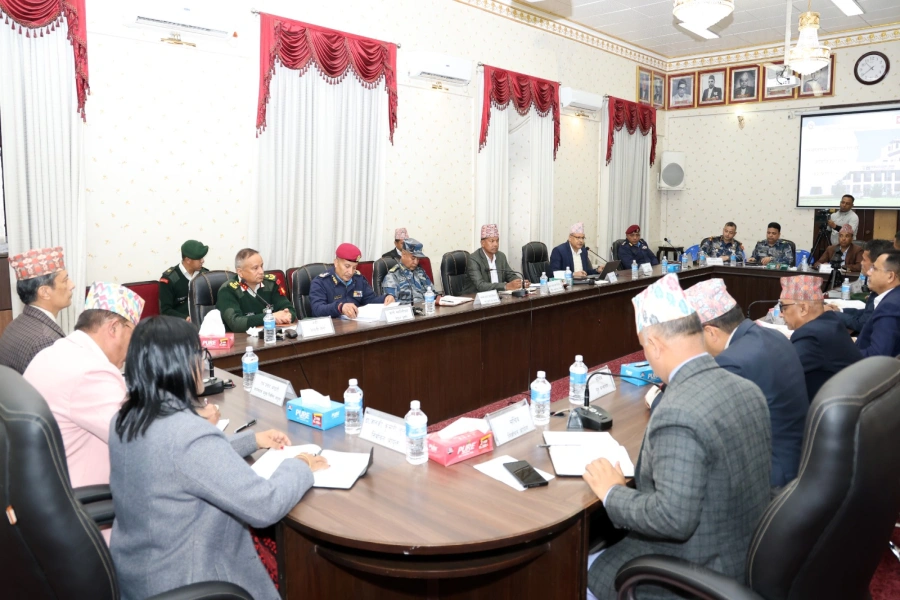If we want a political order truly of, for, and by the people then it is imperative that we ask ourselves a rudimentary question: Why do we need a government and what do we expect it to perform in the new order? As clichéd and ludicrous as this might sound, the answer to this very question is what will determine if we can truly liberate ourselves or remain servants to an obscenely corrupt the all powerful state.
“Where the state begins, individual liberty ceases, and vice versa”, wrote the famous Russian anarchist Mikhail Bakunin. After all, it goes without mentioning that a state, represented by the government, is essentially the monopoly of violent force in any society. The government has a more or less exclusive authority over the use of physical force and over the necessary apparatus for doing so. Anybody who does, or does not for that matter, pay taxes knows this—we do not have a choice over the issue, non-payment is usually met with physical force in the form of imprisonment. But we accept state’s monopoly because, well, that is the de facto rationale behind the existence of any government—we accept it so that physical might not define what is right.
A corollary to this is that all enterprises, industries, and facilities established by the state are ipso facto achieved through the use of force. The most glaring of examples of the usage of this force is how we are compelled to pay taxes to run an utterly incompetent industry called the Nepal Electricity Authority (NEA). If, for instance, a private bank were to announce that it would halt its services for one-half of the entire work day, seven days a week – which is essentially what the NEA is currently doing – then the appalled customers would immediately close their bank accounts and withdraw financial support. But in the case of NEA, even if customers manage to avoid paying electricity tariffs by getting alternate sources of energy, a part of their tax is still funneled by the government to the NEA in the form of subsidies. Now, how unpleasant would be the outcome if a taxpayer were to tell the government that she will refrain from paying that amount equivalent to whatever percentage of tax revenue is channeled to the NEA?
It would only be trite to say that the same goes for any industry run by the government, whether it be in the field of tobacco, telecommunication, airlines, apparel, and what have you—no matter how corrupt or inefficient the industry, we are compelled to pay to run those industries under the threat of imprisonment for failing to do so. Thus, in the guise of “progress and development” the government compels us to finance breeding grounds of bureaucratic corruption, nepotism, and textbook examples of how an industry should not be run.
If the new order is going to be any different, then the constitution has to explicitly restrict government involvement and interference in the running of most, if not all, of the industries except of course the ones explicitly involved in the provision of security—these would include the police, the army, weapons manufacturers, and other security related firms. After all, wherever the government is responsible for company finances it has the power to appoint well-connected bhanjas, bhanjis, didis, and bhais; it also has the power to demand a “fee” for making those appointments and also to get work done in those organizations. The very same bhanjas, bhanjis, didis, and bhais in turn have the authority to commit equally unscrupulous acts because, firstly, no matter how badly the company performs, their salaries and perks are guaranteed by an incessant supply of funds by the state and secondly, nobody is going to reprimand an employee with “source-force”.
Literally, without a single exception, each and every industry run by the government has been a poster child of corruption, incompetence, nepotism, and a plethora of other vile adjectives that I shall refrain from mentioning—one only has to take a glance at Nepal Airlines, Nepal Electricity Authority, Janakpur Churot, Bansbari Jutta,Gorkhapatra, Nepal Television, Nepal Bank, Rastriya Banijya Bank, and countless other industries, some of which are already defunct. Shocking. But what about the myriad industries the government is currently running? Do we not need the government to provide those services for us? The answer to these questions, as the readers will already know, is self-evident from how efficiently-run private companies are brushing aside stagnant government run industries in every imaginable sector.
The choices in front of us are pretty clear: Limit the scope of government to its de facto rationale i e the provision of internal and external security – or let it become a business consortium at the cost of our individual liberty. For when we allow the state – a body which is first and foremost a monopoly of violent force – to run industries, we essentially allow it to control our everyday existence. The larger the scope of government the more servile the people have to become toward the rulers of the state because it will be those rulers we shall have to bribe and beg for jobs, credit, phone service, electric power, and anything else we allow them to run. And to those detractors, who will forever try to deceive us, telling us that the people are the true owners of public industries and their votes are like company shares: Please tell us why we, the “shareholders”, have been treated as the most irrelevant factors during the past twenty years of “democracy”. Why have the people – the supposed owners of public industries – been treated like slaves?
A wise thinker once noted, “That government is best which governs least”.
Photo Exhibition ‘इतिहासको हराएका पाना: The Tyranny of Exclusio...








































